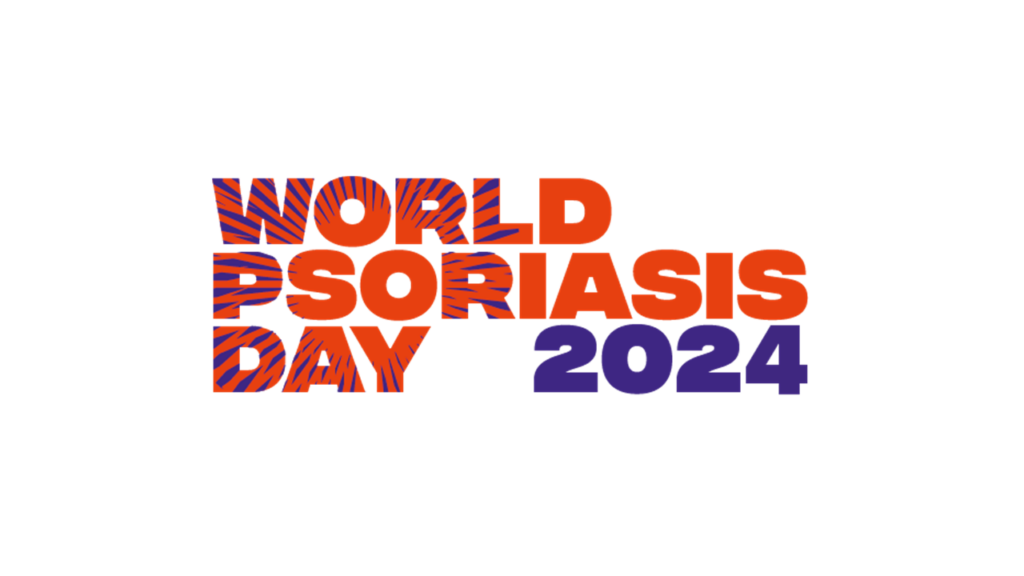World Psoriasis Day on October 29 shines a light on this chronic autoimmune condition, aiming to increase awareness and improve access to care.
Hosted by the International Federation of Psoriasis Associations (IFPA), the World Psoriasis Day 2024 theme, “Psoriatic Disease and Family,” focuses on ensuring equal treatment opportunities worldwide, with an emphasis on improving diagnosis, treatment and support for psoriasis patients.
Psoriasis affects about 60 million people globally — however, many more are affected by it. The IFPA calls them the “Greater Patient” — the family, caregivers or other support members. In a recent report titled “Inside Psoriatic Disease: Family,” the IFPA emphasized the essential roles these “Greater Patients” play in providing emotional support and assistance with daily tasks and treatment, though this involvement often compromises their own well-being and many family caregivers feel unprepared to handle their loved one’s needs.
Psoriasis — marked by red, scaly plaques, usually on the elbows, knees, scalp and lower back — is often accompanied by complications such as psoriatic arthritis and an increased risk of cardiovascular disease. The condition impacts both physical and mental health, with many patients experiencing depression due to its visible nature.
In this blog, we break down some of the latest innovations in psoriasis treatment, including biosimilars, AI-driven diagnostics and the growing role of family care.
XTALKS WEBINAR: Managing Scientific Risks in Dermatology Trials
Live and On-Demand: Wednesday, November 20, 2024, at 10am EST (4pm CET/EU-Central)
Register for this free webinar to learn about applying scientific scrutiny to clinical trials in dermatology through scientific surveillance, as well as its broader applicability across all areas of clinical research.
Trends in Psoriasis Research: Biologics, Biosimilars and New Therapies
Recent innovations in biologics and biosimilars have transformed psoriasis care. Dong-A ST’s Imuldosa (ustekinumab-srlf), Fresenius Kabi’s Otulfi (ustekinumab-aauz) and Celltrion’s SteQeyma (CT-P43), all biosimilars to Stelara, broaden patient access with more affordable treatments.
The economic relief afforded by these biosimilars is critical for many, as traditional treatments can be prohibitively expensive. Biosimilars play an essential role in reducing healthcare costs while maintaining treatment efficacy.
In August 2024, Artax Biopharma completed patient recruitment for its Phase IIa trial of AX-158, exploring a new immune-modulating therapy for psoriasis. AX-158 offers a new class of therapy, by targeting immune responses without causing immunosuppression, making it a potentially safer option for long-term treatment, with results expected by the end of 2024.
Meanwhile, Innovent Biologics recently saw its New Drug Application (NDA) for picankibart, an IL-23p19 inhibitor, accepted by the Chinese National Medical Products Administration (NMPA). Picankibart’s Phase III results showed over 80 percent of patients achieved a 90 percent or greater improvement from baseline Psoriasis Area and Severity Index score (PASI 90; which measures disease severity and response to treatment), with further findings expected by year-end. This drug may significantly improve psoriasis care by offering effective long-term control with fewer side effects.
Amgen’s Otezla (apremilast) continues to expand its reach, with the US Food and Drug Administration (FDA) approving its use for children and adolescents with moderate to severe plaque psoriasis in 2024. Amgen also partnered with actor and entrepreneur La La Anthony to raise awareness about the impact of psoriasis on daily life. Her personal story could be an encouraging nudge to patients to be open about their treatment needs and the effects on their quality of life.
Access to biosimilar alternatives for treatments like Humira is also improving. Celltrion’s adalimumab-aaty, a biosimilar to Humira, has been included in Costco’s prescription program, making it more accessible to patients across the US.
The Psoriasis Diet
Diet has long been an area of research as a potential factor in managing psoriasis. While research is still ongoing, studies suggest that low-calorie diets, the Mediterranean diet and protein restriction may reduce inflammation.
Nutrient-rich foods containing omega-3 fatty acids, prebiotics and curcumin could also help improve immune function and alleviate symptoms. While some elimination diets, like gluten-free, show promise in individual cases, more research is needed to establish clear dietary guidelines for psoriasis patients.
Artificial Intelligence (AI) in Psoriasis: New Diagnostic Tools
Besides refining biologics, psoriasis research is also focused on exploring AI-driven diagnostic tools.
A study reviewed two commercial systems, FotoFinder ATBM and VECTRA WB360, for their ability to improve psoriasis assessments through automated body mapping and 3D photography. These tools have shown potential in detecting and monitoring psoriasis lesions, reducing variability in PASI scoring and improving diagnostic precision.
Another recent review also speaks about the potential of machine learning (ML) algorithms in predicting patient outcomes and tailoring treatments. Both AI and ML personalize and optimize care, offering patients more effective and timely treatment options in the future.
World Psoriasis Day 2024
As psoriasis research continues to push boundaries, the growing use of biosimilars, innovative therapies and AI-driven tools promises better outcomes for patients.
In the IFPA report, 90 percent of families reported disruptions in daily routines, particularly around managing flare-ups and treatments. Better mental health support for families and more accessible healthcare could reduce both the patient’s and their caregiver’s burden.
On World Psoriasis Day 2024, show your support by raising awareness, wearing orange and exploring resources to help those affected by this condition.












Join or login to leave a comment
JOIN LOGIN